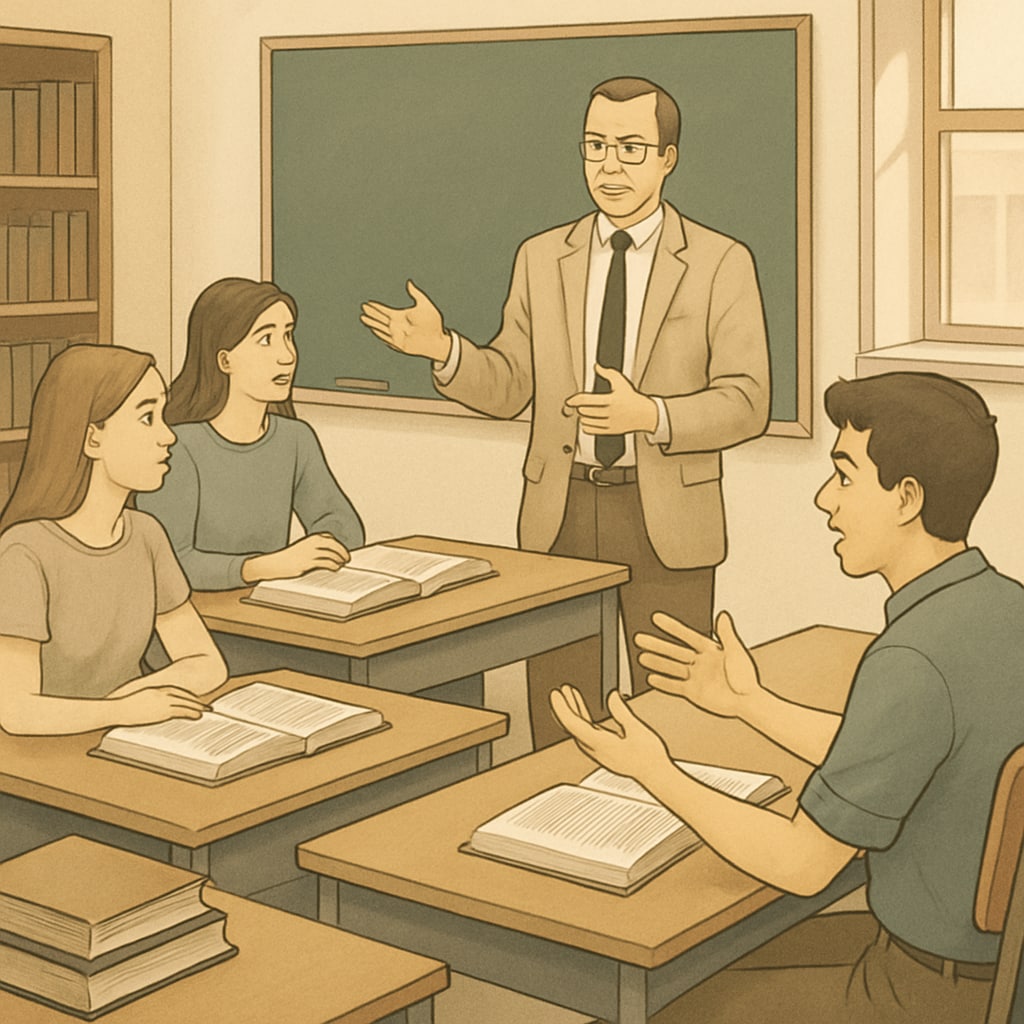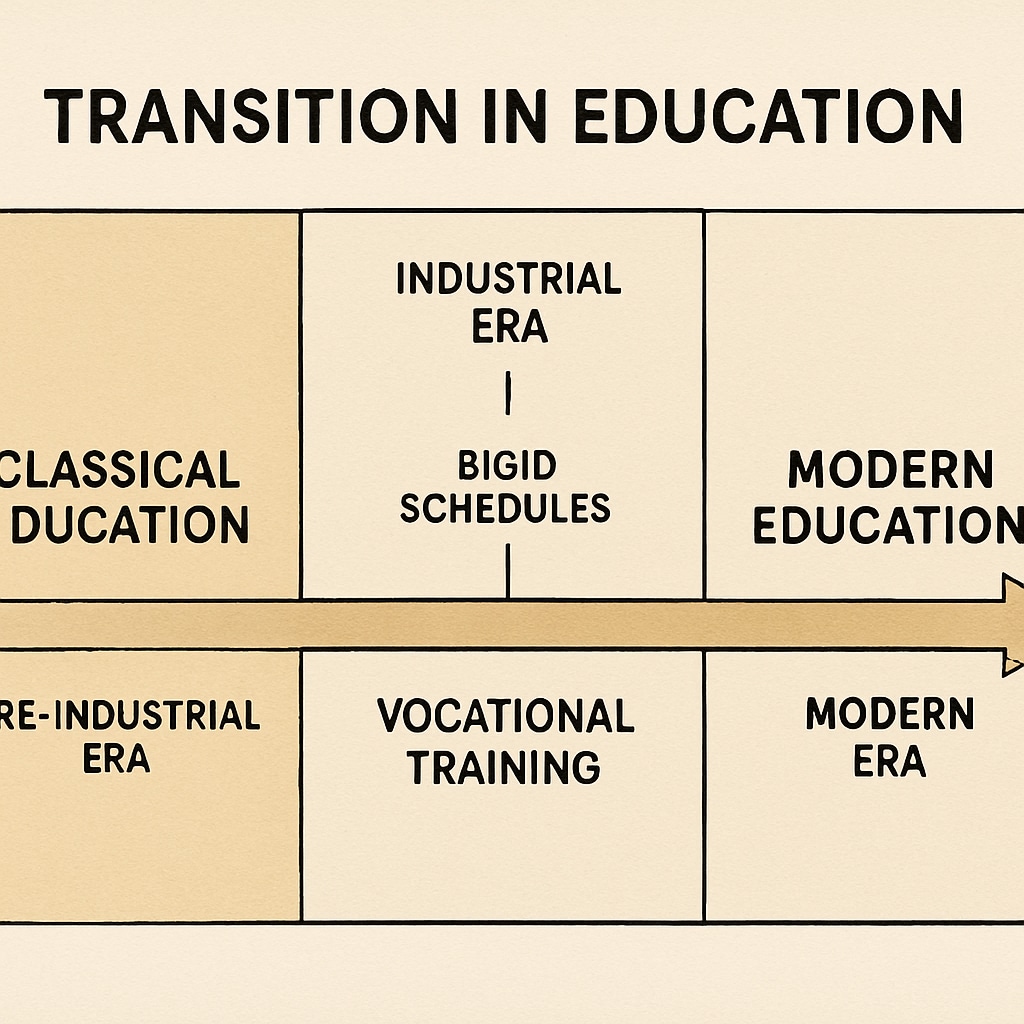Classical education, a system rooted in the study of the humanities, logic, and rhetoric, once stood as the cornerstone of intellectual development. However, its prominence has waned over time, reshaped by historical shifts in society, including industrialization, utilitarian philosophies, and the rise of standardized testing. This article examines the historical transition of classical education from a dominant model to the periphery, identifying the key factors that contributed to its decline and reflecting on ways to reintroduce its enduring values into modern K12 education.
The Rise and Fall of Classical Education: A Historical Perspective
Classical education, which emphasizes the Trivium (grammar, logic, and rhetoric) and the Quadrivium (arithmetic, geometry, music, and astronomy), was long considered essential for cultivating critical thinking and moral reasoning. Yet, by the late 19th and early 20th centuries, its influence began to wane. Industrialization played a pivotal role in this shift. As economies transitioned from agrarian to industrial, the demand for practical, vocational skills overshadowed the perceived value of studying philosophy, literature, and ancient languages.
Additionally, the rise of utilitarianism—a philosophy prioritizing practical outcomes over abstract ideals—further marginalized classical education. Schools increasingly focused on producing workers equipped with skills tailored to industrial needs, neglecting broader intellectual pursuits. The introduction of standardized testing further cemented this trend, as education systems prioritized measurable outcomes and efficiency over the nuanced, critical engagement fostered by classical methods.

Industrialization, Utilitarianism, and the Eclipse of Classical Ideals
Industrialization reshaped education into a system that mirrored the factory model: standardized, regimented, and aimed at uniformity. This shift was evident in the widespread adoption of curricula designed to produce conformity rather than creativity. The flexibility and open-ended inquiry of classical education clashed with these new priorities, leading to its gradual exclusion from mainstream education.
Furthermore, utilitarian approaches to education emphasized immediate economic benefits, sidelining the long-term intellectual and ethical growth that classical education fosters. Practical subjects like mathematics and science became central, while disciplines like rhetoric and philosophy were increasingly dismissed as “impractical.”
Standardized testing exacerbated this trend, as it reduced education to quantifiable achievements. The richness of classical education, with its focus on dialogue and critical analysis, could not be easily measured, making it appear less relevant in a data-driven educational landscape.

Reintegrating Classical Principles into Modern K12 Education
Despite its decline, the core principles of classical education remain profoundly relevant. In an age where critical thinking and adaptability are more crucial than ever, there is growing recognition of the need to reintroduce these values into contemporary K12 education. But how can this be achieved?
- Emphasizing Critical Thinking: Classical education’s focus on logic and rhetoric can be adapted to teach students how to analyze information critically, a skill vital in today’s digital age.
- Integrating Humanities into STEM: Encouraging interdisciplinary learning by blending science, technology, engineering, and mathematics (STEM) with humanities can create well-rounded students capable of ethical reasoning and creative problem-solving.
- Socratic Dialogue in Classrooms: Facilitating open-ended discussions can help students develop their ability to reason and articulate ideas, echoing the classical methods of inquiry.
These approaches not only honor the legacy of classical education but also address the shortcomings of a purely utilitarian model, creating a balanced curriculum that prepares students for both professional success and civic engagement.
The Future of Classical Education in a Modern Context
Reimagining classical education for the modern era does not mean discarding the advancements made in education since the industrial revolution. Instead, it requires a thoughtful integration of classical principles with contemporary methods. By doing so, educators can offer students a comprehensive education that values both intellectual depth and practical skills.
As societies face complex global challenges, the need for critical thinkers and ethical leaders has never been greater. By drawing inspiration from the wisdom of classical education, modern K12 systems can nurture a generation capable of addressing these challenges with intellectual curiosity and moral clarity.
Conclusion: The decline of classical education was shaped by historical forces like industrialization, utilitarianism, and standardized testing. However, its enduring values—critical thinking, ethical reasoning, and intellectual exploration—offer a roadmap for improving modern education. By revisiting the core principles of classical education, we can build a curriculum that equips students with the skills and wisdom they need to succeed in an ever-changing world.


